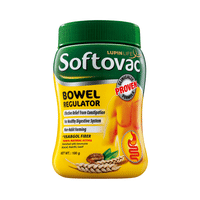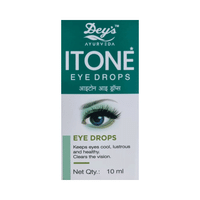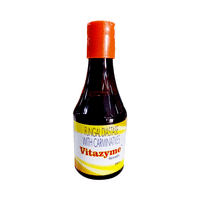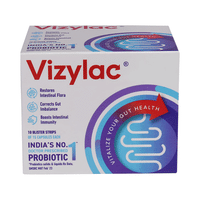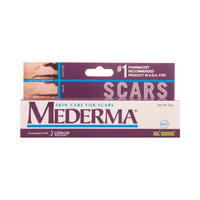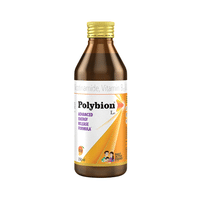Rs.201for 1 packet(s) (5 ml Eye Drop each)
food interaction for Moxigram Eye Drop
alcohol interaction for Moxigram Eye Drop
pregnancy interaction for Moxigram Eye Drop
lactation interaction for Moxigram Eye Drop
food
alcohol
pregnancy
lactation
No interaction found/established
No interaction found/established
The safety of Moxigram Eye Drop during pregnancy has not been established. There are no adequate and well-controlled studies in pregnant women, and animal data on reproductive toxicity are insufficient. Your doctor will weigh the benefits and any potential risks before prescribing.
CONSULT YOUR DOCTOR
Information regarding the use of Moxigram Eye Drop during breastfeeding is not available. Please consult your doctor.
CONSULT YOUR DOCTOR
SALT INFORMATION FOR Moxigram 0.5% w/v Eye Drop
Moxifloxacin(0.5% w/v)
Moxigram eye drop uses
{med_name} is used in the treatment of bacterial eye infections.
How moxigram eye drop works
Moxigram Eye Drop is an antibiotic. It treats bacterial eye infections by preventing the bacteria from dividing and multiplying. It does so by stopping the action of a bacterial enzyme called DNA gyrase.
Common side effects of moxigram eye drop
Burning sensation in eye, Eye discomfort, Dry eye
SUBSTITUTES FOR Moxigram Eye Drop
469 Substitutes
469 Substitutes
Sorted By
 Rs. 261.22pay 27% more per ml of Eye Drop
Rs. 261.22pay 27% more per ml of Eye Drop Rs. 205.30pay 2% more per ml of Eye Drop
Rs. 205.30pay 2% more per ml of Eye Drop Rs. 104.34save 48% more per ml of Eye Drop
Rs. 104.34save 48% more per ml of Eye Drop Rs. 140.95save 31% more per ml of Eye Drop
Rs. 140.95save 31% more per ml of Eye Drop Rs. 127.50save 38% more per ml of Eye Drop
Rs. 127.50save 38% more per ml of Eye Drop
Expert advice FOR Moxigram Eye Drop
- Do not skip any doses and finish the full course of treatment even if you feel better.
- Apply pressure on the corner of the eye (close to the nose) for about 1 minute, immediately after instilling the medication.
- Do not touch the tip to any surface or to your eye to avoid contamination.
- Wait for at least 5-10 minutes before delivering the next medication in the same eye to avoid dilution.
- It may cause short-term blurring of vision when first used. Use caution before driving or using machines.
- Do not wear contact lenses until your infection clears up.
- Make sure to use it within 4 weeks of opening the medication.
Frequently asked questions FOR Moxigram 0.5% w/v Eye Drop
Moxifloxacin
Q. What is Moxigram Eye Drop used for?
Moxigram Eye Drop is used to treat bacterial conjunctivitis, also called “pink eye,” caused by certain bacteria. It helps kill bacteria and reduce redness, swelling, and discomfort.
Q. How should I use Moxigram Eye Drop?
To use Moxigram Eye Drop, you should wash your hands, tilt your head back, and pull down your lower eyelid. Put one drop in the affected eye thrice a day for 7 days as directed by your doctor. Avoid touching the dropper to your eye or your fingers to prevent any contamination and keep the medicine clean.
Q. Can I use Moxigram Eye Drop if I’m allergic to other antibiotics?
No, do not use Moxigram Eye Drop if you’re allergic to moxifloxacin (active medicine in Moxigram Eye Drop), other quinolone antibiotics (like ciprofloxacin), or any ingredient present in Moxigram Eye Drop. Tell your doctor about any past allergic reactions to medications.














